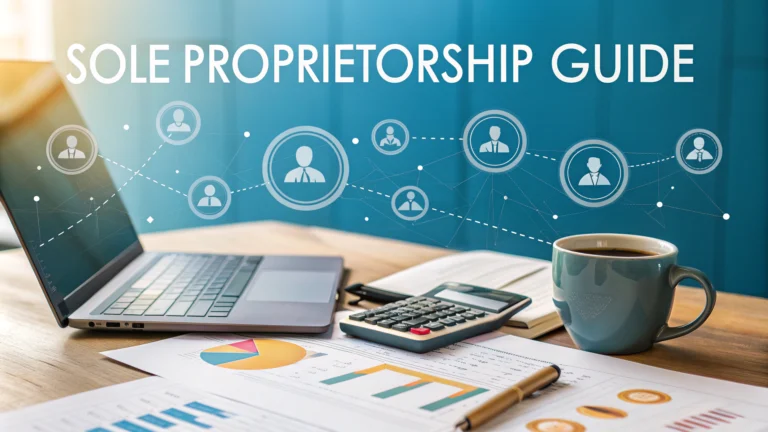Starting a business as a sole proprietor represents one of the simplest and most direct paths to entrepreneurship. Approximately 73% of small businesses in the United States operate as sole proprietorships, making it the most common business structure. Navigating this business model requires understanding its unique advantages, challenges, and strategic considerations.
1. Understanding Sole Proprietorship Basics
A sole proprietorship represents a business owned and operated by a single individual without creating a separate legal entity. Unlike corporations or partnerships, this structure offers maximum control and minimal regulatory requirements.
Key characteristics include:
- Personal liability for all business debts and legal obligations
- Direct taxation through personal income tax returns
- Simplified business registration process
- Complete business decision-making authority
- Lower startup and maintenance costs
Legal considerations play a critical role in establishing a successful sole proprietorship. Business owners must understand local regulations, potential licensing requirements, and tax implications specific to their industry and location.
Financial institutions and potential clients often view sole proprietorships as more informal business structures. Entrepreneurs must work diligently to establish credibility through professional practices and transparent operations.
Professional documentation, including clear business plans and structured financial records, can significantly enhance a sole proprietorship’s perceived legitimacy and potential for growth.
2. Legal and Tax Implications
Sole proprietors face unique legal and tax considerations that differentiate them from other business structures. Understanding these nuances is crucial for financial and operational success.
Tax reporting for sole proprietorships occurs through Schedule C on personal tax returns, combining business income and expenses with individual tax filings. This approach simplifies accounting but requires meticulous record-keeping.
Potential tax advantages include:
- Direct deduction of business expenses
- Simplified tax reporting process
- Potential home office deductions
- Flexibility in expense categorization
Legal risks remain significant, as sole proprietors have unlimited personal liability. Business debts, legal judgments, and financial obligations can potentially impact personal assets if not carefully managed.
Consulting with tax professionals and legal advisors can help sole proprietors develop strategies to mitigate risks and optimize their business structure’s financial performance.
3. Financial Management Strategies
Effective financial management serves as the backbone of any successful sole proprietorship. Business owners must develop robust systems for tracking income, managing expenses, and planning for future growth.
Recommended financial practices include:
- Maintaining separate business and personal bank accounts
- Implementing consistent bookkeeping methods
- Creating detailed financial projections
- Establishing emergency financial reserves
Investment in accounting software can streamline financial tracking and provide real-time insights into business performance. Tools like QuickBooks or FreshBooks offer tailored solutions for sole proprietors.
Developing a comprehensive understanding of cash flow management helps sole proprietors navigate potential financial challenges and sustain long-term business stability.
Regular financial reviews and adaptable budgeting strategies enable business owners to make informed decisions and respond quickly to changing market conditions.
4. Business Growth and Expansion
Sole proprietorships possess unique opportunities and challenges when considering business expansion. Strategic planning and measured growth can help entrepreneurs scale their operations effectively.
Growth strategies might include:
- Gradual service or product diversification
- Strategic partnerships
- Targeted marketing initiatives
- Incremental capital investment
Considering alternative business structures like LLCs can provide additional protection and credibility as businesses evolve beyond initial startup phases.
Networking, continuous learning, and staying adaptable remain critical for sole proprietors seeking sustainable growth and competitive advantage.
Professional development and skill enhancement can significantly contribute to a sole proprietorship’s long-term success and market positioning.
